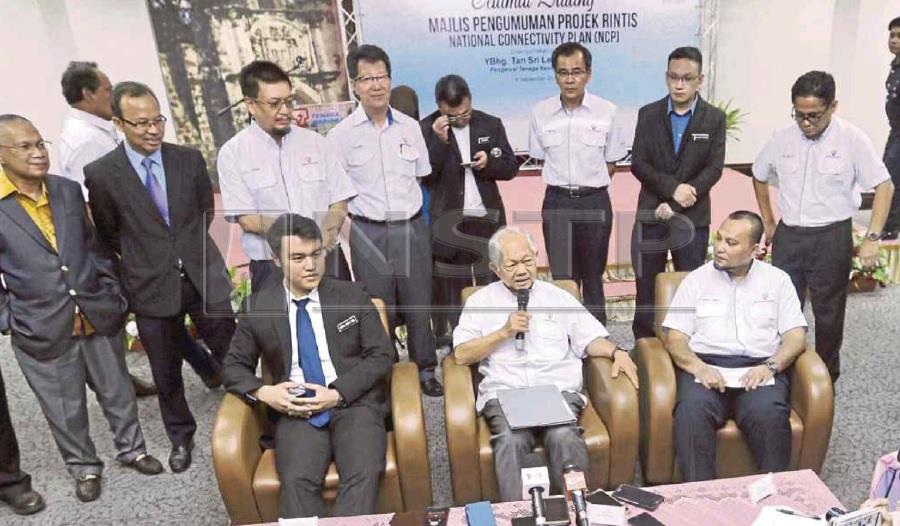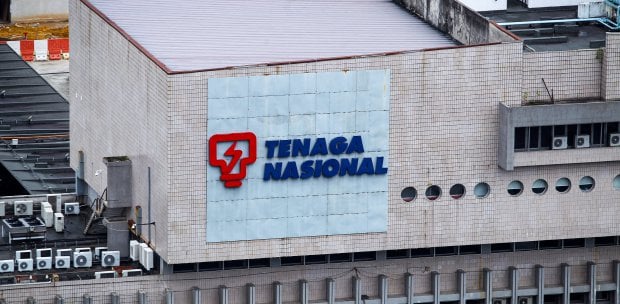KUALA LUMPUR: TENAGA Nasional Berhad (TNB) will start a pilot project in Jasin, Melaka this month to assess the technical, safety and commercial viability of using TNB’s electrical infrastructure for the government’s National Connectivity Plan (NCP) that will allow faster, cheaper and wider Internet availability.
TNB chairman Tan Sri Leo Moggie said the pilot project which would be completed by year end, would cover 1,100 out of 4,300 households in three areas, namely Taman Merbau, Taman Maju and Felda Kemendor, in Jasin.
He was speaking at the launch of the TNB National Connectivity Plan pilot project yesterday. Also present were state Communications, Multimedia, Youth and Sports exco Kerk Chee Yee and Jasin district officer Zamrud Yahya.
Under this project, the households will gain access to a high-speed broadband (HSBB) network that will be made available through TNB’s own fibre optics which forms part of the company’s existing telecommunication network.
Jasin’s location as a suburban town was selected to realise this pilot project as it provided an ideal composition of residential, community centres and government offices.
“The telecommunications system has always been an integral part of the utility industry. For TNB, we have been developing our telecommunication network all these years,” said Moggie.
He explained that the national electricity corporation’s telecommunication network now used fibre optics technology as part of the electricity grid operation’s design and requirements to ensure high reliability of electricity supply nationwide.
“Through this pilot project, TNB is exploring the potential of utilising the available capacity of TNB’s telecommunication assets for the National Connectivity Plan - identified as an important catalyst towards the digital economy without compromising the safety, security and reliability of the electricity supply network.”
A new phase in the industry, it will create more healthy competition in the market, which would enable broadband network operators to provide faster, cheaper and wider Internet access throughout the country in the future.
Moggie said the project would further reduce the digital divide among Malaysians and help the digital economy grow in the country’s quest to become a high-income nation.
TNB, with full support from the Communications and Multimedia and Energy, Science, Technology, Environment and Climate Change ministries was earlier invited to participate in the NCP to help expedite the delivery of the programme.
“The pilot project will be the platform to test the concept of Open Access. The platform is expected to stimulate active participation from new and existing providers in the backhaul and retail broadband that will create competition that should push broadband proces down for the benefit of Malaysians,” stressed Moggie.
“We are thankful to the Melaka state government for its strong support and cooperation which will ensure a smooth implementation of this NCP pilot project,” he added.
TNB will leverage on the outcome of the pilot project to assess the commercial viability on embarking on a large-scale participation of the NCP nationwide.
Kerk said the state government welcomed the initiative by TNB, which was in line with the government’s vision of developing urban cities with wider Internet broadband access.
“Melaka will give its full cooperation to TNB to ensure that this pilot project achieves its target under the NCP,” he said.
He said the pilot project would act as a catalyst towards the implementation of a smart city in Melaka.
“The Internet has become a basic need of the people and this pilot project will enable more people to have access to the Internet, via high speed broadband and at a much more competitive price,” he added.
Kerk said this project was necessary to improve the current Internet penetration rate in the country and hoped that more states would be able to benefit from it.





